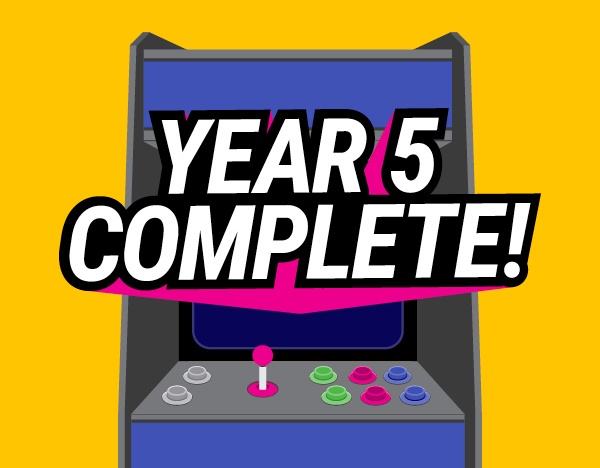You’ve likely been asked it in a job interview, but “Where do you see yourself in 5 years?” is a job interview question that has the power to stump a lot of people.
It might even make you anxious to think about it.
This could be because while a lot of us think about the future, we don’t always consider exactly how we might get there. But five years from now is a timeframe that will be relevant to an employer if they’re considering hiring you, so it makes sense that they would want to know your goals or intentions.
Of course, how you answer this question is important because you don’t want to get too personal or say something inappropriate. But a bit of preparation can help you get it right.
To help you plan your answer to this common interview question, read on for the expert advice of career and interview Coach Leah Lambart, of Relaunch Me.
Contents
- Why interviewers ask this question
- What not to say
- Five tips on how to answer: ‘Where do you see yourself in 5 years?’ (with sample answers)
- Conclusion
Why interviewers ask this question
“Hiring managers don’t really expect you to know exactly what you will be doing five years from now,” Lambart says. “But they do want to see if you have a realistic view of how you might be tracking and whether you actually have any career goals.”
“Demonstrating that you have some understanding of where you might be in five years shows the interviewer that you have done some research and have put some thought into your career and, more importantly, how this particular role fits into that career plan,” says Lambart.
“Hiring managers generally want to recruit a candidate who is motivated to achieve their career goals and more likely to stay with the organisation for a decent period of time. By demonstrating that this particular role fits into your greater long-term goals, you give the hiring manager a sense that you will stick around and that the time they invest in training you won’t be for nothing.”
What not to say
- Don’t share unrelated dreams about studying or outlandish jobs
“Steer clear of expressing your dreams to ‘travel the world after COVID-19 is over’ or ‘being a successful entrepreneur,’ as this will also suggest to the recruiter that you are just biding your time or using them as a bridging job,” Lambart says.
This question isn’t the time to share your wildest visions of the future. “Overall, you need to sound excited about this role, but also realistic that you may need to spend ample time in that role before being promoted or moved into a specialist area. Hiring managers want to hire candidates who are open to learning new skills.”
So it’s important to stay grounded in reality and be enthusiastic about the opportunity to grow in the role.
- Don’t make jokes about taking the interviewer’s job
You may feel nervous and be tempted to diffuse the situation with some light humor, but making a comment like ‘hopefully I’ll be sitting in your seat!’ generally doesn’t go down that well. “If you are already eyeing off their job, they may think that you may be difficult to manage,” Lambart says.
“Instead, play it safe. Do some research to see if you can find out what would be a typical career path from the role that you are interviewing for. What would be the logical next step within this company? What skills would you need to develop to reach this next role? Are there any particular areas that you could specialise in?”
- Don’t display uncertainty or a lack of ambition
If you haven’t thought about your goals, it will be obvious when you’re asked this question – you’ll probably um and ahh and give a vague answer. This can hurt your chances of progressing through the job application process, as the interviewer wants to see you show some direction, so think carefully about how you respond to this question.
“If you sound too casual about your five-year plan, then it may come across that you haven’t done your research and have no real motivation to succeed. On the other hand, if you dream too big, you may come across as a potential ‘flight risk’ who will take off for something bigger and better,” says Lambart.
“In reality, you may be considering multiple career paths or roles, but it would be recommended that you tailor your answer to the career path that this role is likely to lead you down.”
Five tips on how to answer: ‘Where do you see yourself in 5 years?’ (with sample answers)
- Think about where you would fit into the organisation
Because you need to tailor your answer, Lambart recommends researching the organisation or company you’re interviewing with and considering where you’d fit into it.
“Do your best to get an understanding of the different levels within that organisation and what a typical career development plan might look like,” Lambart says. Be realistic about where you fit in based on your level of skill and experience.
“For example, if you are interviewing for an entry-level role, it would be realistic to think that after five years you have developed specific technical and soft skills, gained industry and company knowledge, and may be taking on more responsibility such as supervising, coaching and mentoring junior staff.”
Sample answer:
I’d love to take this opportunity to further develop the specific skills I have now and grow with the organisation. Eventually, in five years or so, I’d like to take on a more senior role in the organisation as a supervisor, manager or mentor for junior staff members.
- Consider specific areas of the business or role that interest you
It can also be helpful to zero in and take a closer look at the role. “Another way that you could answer this question would be to talk about a specific area of the business that interests you or where you would like to gain specific expertise,” Lambart says.
This is a great way to share any interests you have that may be slightly outside of the role but still aligned with the company. It demonstrates that you’ve considered your career goals outside of this particular role, but that you can still see a future with the organisation.
Sample answer:
I am really excited about this accounting position, and the opportunity to further develop my skills and experience. However, I am aware that the firm has a tax consulting team, and in the longer term I would love to develop my skills in providing complex tax advice.
- Reflect on the skills you want to develop
Consider how this job specifically would help you develop skills you want to gain or improve, based on the job description, research you’ve done on the company and what the recruiter or hiring manager has told you.
“If you take the time to really understand the role that you’re interviewing for, you will be able to identify both the technical skills that you will develop in addition to the softer skills such as relationship-building skills, stakeholder management, problem-solving or project management skills,” says Lambart. “Therefore, when you’re asked this question, you could focus on the specific knowledge and skills that you’re keen to develop.”
Sample answer:
In five years’ time, I aim to have developed strong digital marketing skills in addition to account management skills, influencing and relationship management skills. I would also hope that I may be in a position to be supervising, coaching and mentoring more junior staff.
- Focus on other career goals like qualifications
“Another way that you could respond to this question is to focus on specific career goals that you would like to achieve,” says Lambart. “Perhaps this will relate to becoming qualified or certified in a particular area or achieving a certain level within the organisation.”
Learning or upskilling may seem like a career risk as it could require time and effort away from your work, but in fact, having an interest in deepening or broadening your qualifications can be an attractive quality to employers. It shows a level of dedication to your craft and a desire to keep learning, and demonstrates drive. You just have to ensure that you link this dedication and drive to the job at hand.
- Show your enthusiasm for the opportunity
“Most importantly, answer this question with enthusiasm rather than sounding completely directionless,” says Lambart. Avoid standing out for the wrong reasons. This is the time to show that you have a positive attitude, that you’re ready, willing and able to dive into the demands of the job, and that you can really see yourself at the organisation.
A negative attitude could hold you back, so be sure to express your positive feelings about the role and the organisation. “Demonstrate to the hiring manager that you are excited about the possibility of working for them for the next five years, learning new skills, developing specialised knowledge and moving upwards within their organisation.”
It’s pretty much a given that you’ll be asked ‘Where do you see yourself in 5 years?’ – or something similar – in an interview. By taking time to reflect on this common interview question and preparing a response that relates to the role at hand, you’ll be ready to answer in a way that helps you make a great impression.



